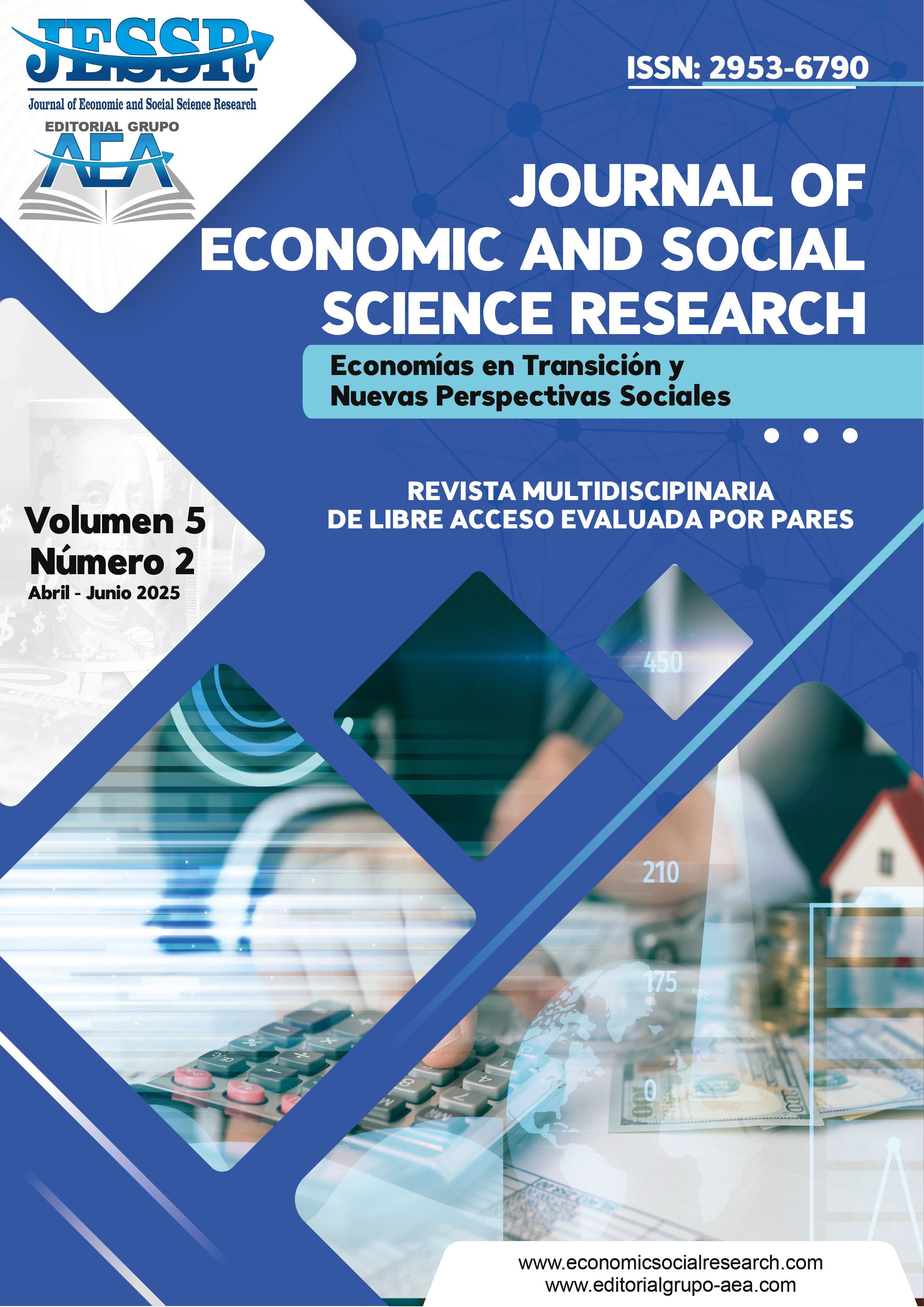Judicial independence in Ecuador and the challenges facing the control of the Judiciary Council
Main Article Content
Abstract
Judicial independence in Ecuador is compromised by the control exercised by the Council of the Judiciary, generating legal insecurity, self-censorship among judges, and effects on judicial impartiality. Using a qualitative approach, with a retrospective design and a descriptive, explanatory and propositional scope, a documentary review of regulations, jurisprudence and doctrine was carried out, in addition to interviews with practicing judges. The results reveal tensions between the principle of judicial independence and the current disciplinary regime, especially in the application of Article 109 of the Organic Code of the Judiciary, which provides ambiguous grounds for sanctions such as inexcusable error or negligence. The study evidences a generalized perception of legal insecurity and self-censorship in the judiciary, and the urgent need for a normative reform that guarantees legal security, impartiality and functional autonomy. It concludes that judicial independence cannot depend solely on constitutional declarations, but requires clear normative guarantees, a solid institutional framework and disciplinary procedures respectful of due process to ensure effective, impartial and reliable justice.
Downloads
Article Details
Section

This work is licensed under a Creative Commons Attribution-NonCommercial 4.0 International License.
How to Cite
References
Asamblea Nacional del Ecuador (2009). Código Orgánico de la Función Judicial. Registro Oficial Suplemento 544. https://www.puertodemanta.gob.ec/wp-content/uploads/2021/02/C%C3%93DIGO-ORG%C3%81NICO-DE-LA-FUNCI%C3%93N-JUDICIAL.pdf
Barahona-Martinez, G. E., Barzola-Plúas, Y. G., & Peñafiel-Muñoz, L. V. (2024). El Derecho a la Protección de Datos y el Avance de las Nuevas Tecnologías en Ecuador: Implicaciones Legales y Éticas. Journal of Economic and Social Science Research, 4(3), 46-64. https://doi.org/10.55813/gaea/jessr/v4/n3/113 DOI: https://doi.org/10.55813/gaea/jessr/v4/n3/113
Bernal, C. A. (2010). Metodología de la investigación (3.ª ed.). Pearson Educación. https://abacoenred.org/wp-content/uploads/2019/02/El-proyecto-de-investigaci%C3%B3n-F.G.-Arias-2012-pdf.pdf
Bienestar (2020). Diccionario jurídico: Latinismos legales y su aplicación. Editorial Jurídica Bienestar.
Comisión de Venecia (2010). Informe sobre la independencia del sistema judicial: Parte I - La independencia de los jueces. Consejo de Europa. https://www.venice.coe.int/webforms/documents/default.aspx?pdffile=CDL-AD(2010)004-e
Comisión Interamericana de Derechos Humanos (2019). Garantías para la independencia de las y los operadores de justicia: Hacia el fortalecimiento del acceso a la justicia y del Estado de derecho en las Américas (OEA/Ser.L/V/II.Doc.44). Organización de Estados Americanos. https://www.oas.org/es/cidh/informes/pdfs/OperadoresJusticia.pdf
Comité de Derechos Humanos de la ONU (2007). Observación general N.º 32: El derecho a un juicio imparcial y a ser juzgado por un tribunal competente, independiente e imparcial. Naciones Unidas. https://www.refworld.org/es/leg/coment/ccpr/2007/es/52583
Consejo de la Judicatura (2019). Reglamento del Régimen Disciplinario. https://www.funcionjudicial.gob.ec/resources/pdf/resoluciones/2021/038-2021.pdf
Consejo de la Judicatura (2020). Resoluciones administrativas sobre sanciones disciplinarias. https://www.funcionjudicial.gob.ec/expedientes-disciplinarios/
Constitución de la República del Ecuador (2008). Registro Oficial No. 449. https://www.asambleanacional.gob.ec/sites/default/files/documents/old/constitucion_de_bolsillo.pdf
Corte Constitucional del Ecuador (2020). Sentencia No. 3-19-CN/20. https://www.corteconstitucional.gob.ec/auto-de-aclaracion-y-ampliacion-dentro-de-la-sentencia-nro-3-19-cn-20-declaracion-jurisdiccional-previa-referente-al-dolo-manifiesta-negligencia-o-error-inexcusable/#:~:text=la%20Sentencia%20Nro.-,3%2D19%2DCN%2F20%20Declaraci%C3%B3n%20jurisdiccional%20previa%20referente%20al,manifiesta%20negligencia%20o%20error%20inexcusable&text=El%20Pleno%20de%20la%20Corte,ampliaci%C3%B3n%20dentro%20del%20Caso%20Nro
Corte Constitucional del Ecuador (2022). Sentencia No. 102-21-IN/22. https://www.corteconstitucional.gob.ec/sentencia-102-21-in-22/
Corte Interamericana de Derechos Humanos (2013). Caso Quintana Coello y otros vs. Ecuador. Sentencia de 23 de agosto de 2013. https://www.corteidh.or.cr/docs/casos/articulos/seriec_266_esp.pdf
Corte Interamericana de Derechos Humanos (2020). Opinión Consultiva OC-25/18. https://www.corteidh.or.cr/sitios/libros/todos/docs/OC-25-info.pdf
Corte Nacional de Justicia (2018). La independencia judicial. https://www.cortenacional.gob.ec/cnj/images/Produccion_CNJ/dialogos%20judiciales/dialogos%206.pdf
Díaz, V., Torruco, U., Martínez, M., & Varela, R. (2013). La entrevista: recurso flexible y dinámico. Investigación en Educación Médica, 2(7), 162–167. https://doi.org/10.1016/S2007-5057(13)72683-1 DOI: https://doi.org/10.1016/S2007-5057(13)72706-6
Durán, E. (1988). Derecho constitucional latinoamericano. Quito: Editorial Jurídica.
García Moreno, M., & Vargas Fonseca, A. D. (2023). Restitución de derechos territoriales y ordenamiento ambiental en territorios étnicos en Colombia. Journal of Economic and Social Science Research, 3(3), 76-96. https://doi.org/10.55813/gaea/jessr/v3/n3/74 DOI: https://doi.org/10.55813/gaea/jessr/v3/n3/74
García-Sayán, D. (2013). Informe del Relator Especial sobre la independencia de los magistrados y abogados, presentado ante la Asamblea General de las Naciones Unidas (A/68/285). Naciones Unidas. https://undocs.org/A/68/285
Jadán, D. (2019). Independencia judicial y poder político en Ecuador. https://repositorio.uasb.edu.ec/bitstream/10644/7110/1/SM-245.pdf
Martínez, I. (2023). Metodología jurídica: Lógica, teoría y práctica del Derecho. Editorial Jurídica Continental.
Martínez, M. L. (2004). Teoría de la jurisdicción y la independencia judicial. Madrid: Editorial Dykinson.
Oyarte, R. (2014). Derecho constitucional ecuatoriano y comparado. Quito: Ediciones Jurídicas.
Salgado, H. (2012). Instituciones políticas y Constitución del Ecuador. Quito: Universidad Andina Simón Bolívar.
Senplades (2012). Informe de cumplimiento del Código Orgánico de la Función Judicial: Avances y desafíos. Secretaría Nacional de Planificación y Desarrollo. https://www.planificacion.gob.ec/wp-content/uploads/downloads/2015/05/Informe-final-de-rendici%C3%B3n-de-cuentras-Matriz-.pdf
Tribunal Constitucional del Ecuador (2015). Sentencia No. 002-15-SIN-CC. https://esacc.corteconstitucional.gob.ec/storage/api/v1/10_DWL_FL/e2NhcnBldGE6J3RyYW1pdGUnLCB1dWlkOidiYmJiMTc5YS01NmYzLTRhMGUtYTAxMS1mOThlOTkwMTM0MzUucGRmJ30=
World Justice Project (2023). Rule of Law Index 2023. World Justice Project. https://worldjusticeproject.org/rule-of-law-index/global
Zaffaroni, E. R. (2012). La independencia interna del juez. Asociación Pensamiento Penal. https://www.pensamientopenal.org/la-independencia-interna-de-un-juez-por-eugenio-raul-zaffaroni/





